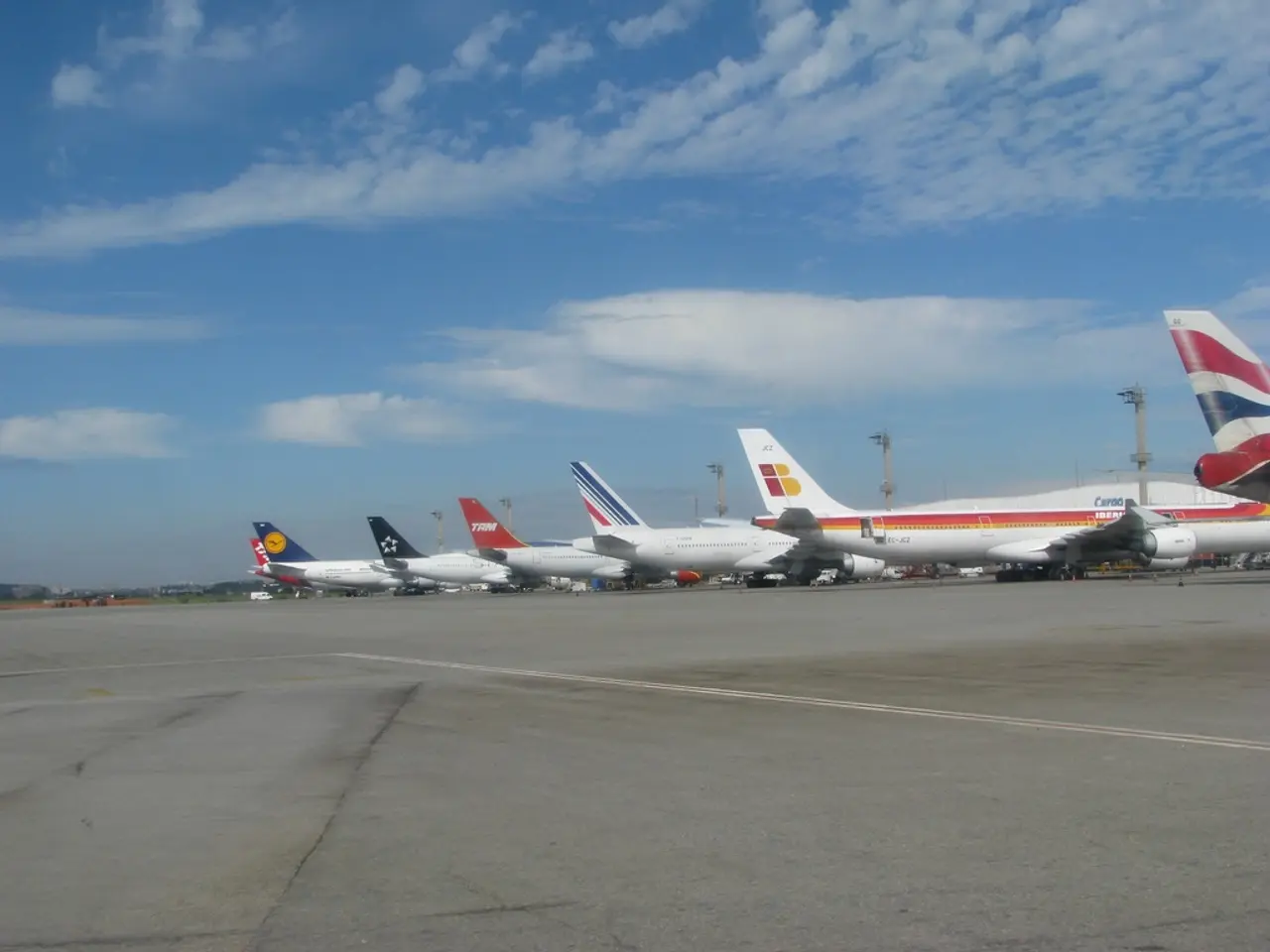Airlines criticize Heathrow airport for its proposal to finance improvements by increasing passenger landing fees
Heathrow Airport, Europe's busiest hub, has unveiled a £10 billion improvement plan aimed at enhancing terminal capacity, improving passenger experience, and boosting operational resilience. The proposed plan, however, has raised concerns among airlines, who have criticised the increase in landing fees that will fund the project.
The landing fees at Heathrow Airport are set to rise from an average of £28.46 per passenger (nearly €33) to £33.26 (€38.35) from 2027. This represents a 17% increase and a significant financial burden for airlines, who fear the costs may be passed onto consumers or impact their profitability.
Virgin Atlantic has expressed concern, highlighting that the cost increase ultimately impacts both consumers and airlines. British Airways' owner, IAG SA, has described the proposed increase as "excessive", signalling dissatisfaction with the steep rise in fees and its potential impact on airline operations and costs.
Despite these concerns, Heathrow Airport has emphasised the necessity of the investment to maintain its competitive position among global hubs and improve its international rankings. The airport plans to enhance terminal space, increase cargo capacity, and improve punctuality and passenger services by creating new lounges, shops, and improving baggage and security systems, all while focusing on sustainability.
The improvement scheme is expected to handle an additional 10 million passengers per year, boosting capacity by 12%. The freight capacity of the airport is also expected to increase by 20% as a result of the improvements.
The UK's Civil Aviation Authority (CAA) is responsible for setting the cap on charges at Heathrow Airport and will appraise the improvement and funding plans. Part of the space required for the expansion will come from demolishing Terminal 1, which is currently out of service.
The expansion also includes extending Terminal 2 and redeveloping the Central Terminal Area, as well as a proposed new road tunnel. A third runway, a contention for years, has been invited for stakeholders to put forward proposals by this summer.
Heathrow Airport's CEO, Thomas Woldbye, stated that the improvements would unlock "the growth capacity airlines want". However, Virgin Atlantic has called for a review of Heathrow's economic regulatory model, adding to the ongoing debate about the financial impact of the increased landing fees on airlines and passengers.
In summary, Heathrow's proposed landing fee increase and £10 billion improvement plan have sparked criticism from airlines, who are wary about the financial impact. Despite these concerns, Heathrow remains committed to its plans, aiming to secure additional funding through the increase in landing fees and maintain its position as a leading global hub.
The increase in landing fees at Heathrow Airport, from an average of £28.46 to £33.26 per passenger, will fund a £10 billion improvement plan. This plan includes eco-friendly developments in hotels and overall infrastructure, aiming to boost the airport's lifestyle and business, particularly in travel and finance. Airline officials, however, have expressed concerns about the potential impact on their profitability.




